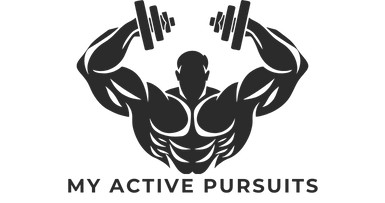Key Nutrients for Vegan Athletes
Ensuring a diet rich in essential nutrients is crucial for vegan athletes aiming for peak performance. Among these, vegan protein sources are paramount. Since animal products are out, alternatives like lentils, chickpeas, and quinoa offer protein without compromising nutritional goals. Understanding how these foods can be combined to form complete proteins, such as mixing beans with rice, becomes vital.
Beyond protein, maintaining a robust intake of micronutrients is equally important. Vitamins and minerals like B12, iron, calcium, and omega-3 fatty acids play significant roles in energy production and muscle function. Since these are less prevalent in plant-based diets, fortified foods and supplements may be necessary to meet daily recommendations.
Have you seen this : Unlocking Muscle Gains: The Impact of Protein Timing on Weightlifting Performance
Strategizing for adequate nutrient consumption involves planning meal compositions. An intelligent approach includes:
- Diversifying food choices to cover all nutrient bases.
- Incorporating fortified products to compensate for typical vegan diet gaps.
- Regular blood tests to monitor nutrient levels and adjust diet or supplement needs accordingly.
By focusing on these strategies, vegan athletes can maintain their energy levels and enhance their overall athletic prowess.
Have you seen this : Winning strategies: harnessing match play data to boost tennis performance
Meal Planning Strategies for Vegan Athletes
Achieving optimal performance on a vegan diet requires strategic planning to ensure nutrient needs are met. Athletes need to focus on creating a balanced plate, timing their nutrient intake effectively, and incorporating easy meal prep strategies.
Creating a Balanced Vegan Plate
A well-rounded vegan meal should include an appropriate macronutrient distribution. This means balancing carbohydrates, proteins, and fats to support energy needs and recovery. Aim to prioritize whole foods over processed alternatives; whole foods typically offer more vitamins, minerals, and fiber. Examples of balanced meals could be a quinoa salad with chickpeas, spinach, and avocado, or a lentil stew with sweet potatoes and kale.
Pre- and Post-Workout Nutrition
Snacks and meals consumed around workouts significantly affect energy levels and recovery. It’s beneficial to consume carbohydrates and proteins before and after exercise for energy and muscle repair. A banana with almond butter pre-workout and a smoothie with soy milk and berries post-workout are practical choices. Don’t overlook hydration; it plays a crucial role in performance, so consistently sipping water throughout the day is recommended.
Easy Meal Prep Ideas
For busy athletes, batch cooking is a time-saver. Prepare large quantities of nutritious dishes like chili or stir-fries. Efficient meal prep includes using tools such as slow cookers or instant pots. Simple, nutritious recipes ensure you’re fueled without excessive kitchen time.
Performance and Nutritional Considerations
Vegan athletes often face unique challenges when it comes to athletic performance. While maintaining optimal energy levels is crucial, understanding the specific needs for vegan nutrition can be equally important. The body’s demand for energy increases significantly during intense training or competitions. Without the right balance, vegan athletes may struggle to reach their potential.
Carbohydrates play a pivotal role in fueling performance. They serve as the primary energy source, necessary for both endurance and strength-based activities. For vegan athletes, finding high-carb foods such as whole grains, fruits, and legumes can be beneficial.
Additionally, nutrient timing plays a vital part in maximizing recovery and performance. Consuming carbohydrates simply before and after workouts can help replenish glycogen stores. This ensures that energy levels are restored, optimizing muscle recovery and preparation for the next athletic endeavor.
For optimal results, vegan athletes should carefully consider their nutrient intake. Incorporating a variety of plant-based protien sources ensures balanced nutrition. By focusing on timing and content of meals, vegan athletes can maintain their energy, improve athletic performance, and support muscle recovery effectively.
Addressing Common Challenges and Deficiencies
Venturing into the world of vegan athletics can be rewarding, yet it comes with its fair share of challenges. Encountering nutrient deficiencies is a primary concern for vegan athletes. Understanding potential deficiencies is crucial to maintaining optimal health and performance.
Identifying Potential Nutrient Deficiencies
Common deficiencies in vegan diets may include vitamin B12, iron, calcium, and omega-3 fatty acids. Symptoms resulting from these deficiencies can range from fatigue and weakness to longer-term health risks such as impaired immune function and bone weakness. Proactively monitoring nutrient levels through blood tests and dietary assessments is key. Strategies for addressing deficiencies include incorporating fortified foods and supplements and diversifying food sources, like including leafy greens and legumes.
Overcoming Social and Lifestyle Challenges
Navigating social situations as a vegan athlete requires adaptability. Eating out might seem daunting, but researching restaurant options in advance and communicating dietary needs clearly can help. While traveling, maintaining a vegan diet becomes easier with pre-planning, such as packing snacks or identifying local vegan-friendly eateries. Establishing connections with community resources, like vegan athletic groups, offers support and useful tips.
Expert Advice and Recommendations
Insights from sports nutritionists provide tailored advice for vegan athletes. Recommendations emphasize eating a variety of plant-based foods to ensure a comprehensive nutrient intake. Nutritious meal planning and ongoing education in vegan nutrition are crucial for optimizing performance. Various online courses and literature can serve as excellent resources for staying informed and making educated dietary choices.


